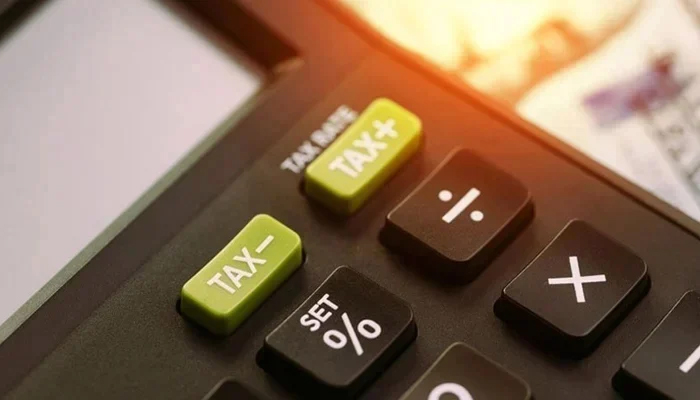Untaxed wealth
Naturally average families in the country were caught off guard and were forced to be selective in their spending
LAHORE: Looking at the economy through the lens of the masses reveals a harsh reality: their incomes haven't kept pace with the skyrocketing prices of essential goods, leaving many facing hunger and an ever-deteriorating quality of life.
The past few years have been a rollercoaster ride for the economy, leading to a significant increase in the cost of living. This is driven by various factors, including the decline in the rupee's value, rising power and gas rates, rampant food inflation, and exorbitant transportation costs due to surging petroleum product prices. The cost of education and healthcare has also seen a steep rise, leaving average families struggling to make ends meet.
Naturally average families in the country were caught off guard and were forced to be selective in their spending.
Those leading a comfortable life before the crisis were forced to be conservative on minor luxuries like entertainment, use of vehicles. They controlled power use but tried to provide for education and health care to their dear ones. The expenses on food were also minimized to a possible extent. Even after this most of them found their budgets very tight.
The lower middle class however was not so lucky the cost of living increased beyond their means. Those having bikes use it selectively. They have slashed their food budget by omitting the use of meat or beef in their dishes. Milk use is for small children only. They have uninstalled their air conditioners. Power use is strictly controlled. The children have been shifted to schools that charge lower fees. Health issues are delayed till there is no recourse but to see the doctor.
The third category in this regard are those drawing minimum wage. They are at a loss how to manage family life. It is impossible for them to make both ends meet at current income. Huger stares at the faces of their family members. Educating children or providing health care is a luxury for this segment of society. They can reduce the power use to minimum during winter but shudder at the thought of operating even a fan during summers. They cannot avoid the kitchen fuel which for most of them is LPG which costs over 10 percent of their monthly income.
Still lower cadre the daily wagers or workers earning half the minimum wage have nowhere to go. They are living alms. Daily wagers get engaged for 10-15 days a month as there is no demand for their labor skills in the market. Some of these families go to bed hungry.
This is the general situation of 80 percent of the population of the country. The lowering quality of life has created tensions within the family. If a son cannot provide for the medicines of parents he is scolded by them. When petty wishes of the children cannot be met it breaks the will of the parents to stay sane. There is no immediate solution in sight.
In contrast we see 20 percent of the population living a comfortable or even luxurious life. The eateries in posh localities are busier than ever.
The painful aspect of this way of life is that almost 10 percent of those enjoying luxury earn their money unethically, through corruption, rent-seeking, smuggling and other unethical practices. They do not have to pay taxes for illegally earned money. The ruling elite lives a luxurious life at public expense. There is no desire among them or even those that are playing in legally earned wealth to share it with the have-nots.
-
 Princess Beatrice, Eugenie Are ‘not Innocent’ In Epstein Drama
Princess Beatrice, Eugenie Are ‘not Innocent’ In Epstein Drama -
 Reese Witherspoon Goes 'boss' Mode On 'Legally Blonde' Prequel
Reese Witherspoon Goes 'boss' Mode On 'Legally Blonde' Prequel -
 Chris Hemsworth And Elsa Pataky Open Up About Raising Their Three Children In Australia
Chris Hemsworth And Elsa Pataky Open Up About Raising Their Three Children In Australia -
 Record Set Straight On King Charles’ Reason For Financially Supporting Andrew And Not Harry
Record Set Straight On King Charles’ Reason For Financially Supporting Andrew And Not Harry -
 Michael Douglas Breaks Silence On Jack Nicholson's Constant Teasing
Michael Douglas Breaks Silence On Jack Nicholson's Constant Teasing -
 How Prince Edward Was ‘bullied’ By Brother Andrew Mountbatten Windsor
How Prince Edward Was ‘bullied’ By Brother Andrew Mountbatten Windsor -
 'Kryptonite' Singer Brad Arnold Loses Battle With Cancer
'Kryptonite' Singer Brad Arnold Loses Battle With Cancer -
 Gabourey Sidibe Gets Candid About Balancing Motherhood And Career
Gabourey Sidibe Gets Candid About Balancing Motherhood And Career -
 Katherine Schwarzenegger Shares Sweet Detail From Early Romance Days With Chris Pratt
Katherine Schwarzenegger Shares Sweet Detail From Early Romance Days With Chris Pratt -
 Jennifer Hudson Gets Candid About Kelly Clarkson Calling It Day From Her Show
Jennifer Hudson Gets Candid About Kelly Clarkson Calling It Day From Her Show -
 Princess Diana, Sarah Ferguson Intense Rivalry Laid Bare
Princess Diana, Sarah Ferguson Intense Rivalry Laid Bare -
 Shamed Andrew Was With Jeffrey Epstein Night Of Virginia Giuffre Assault
Shamed Andrew Was With Jeffrey Epstein Night Of Virginia Giuffre Assault -
 Shamed Andrew’s Finances Predicted As King ‘will Not Leave Him Alone’
Shamed Andrew’s Finances Predicted As King ‘will Not Leave Him Alone’ -
 Expert Reveals Sarah Ferguson’s Tendencies After Reckless Behavior Over Eugenie ‘comes Home To Roost’
Expert Reveals Sarah Ferguson’s Tendencies After Reckless Behavior Over Eugenie ‘comes Home To Roost’ -
 Bad Bunny Faces Major Rumour About Personal Life Ahead Of Super Bowl Performance
Bad Bunny Faces Major Rumour About Personal Life Ahead Of Super Bowl Performance -
 Sarah Ferguson’s Links To Jeffrey Epstein Get More Entangled As Expert Talks Of A Testimony Call
Sarah Ferguson’s Links To Jeffrey Epstein Get More Entangled As Expert Talks Of A Testimony Call




